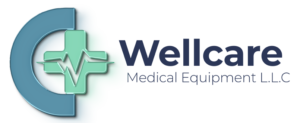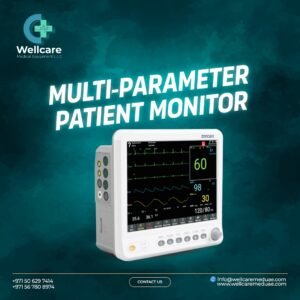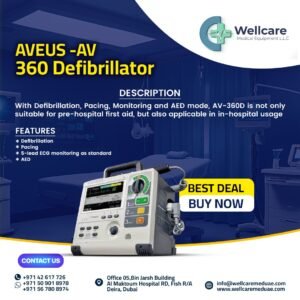Well Care Medical Equipment LLC offers a variety of X-ray machines designed to meet different diagnostic needs. Here’s an overview of the types of X-ray machines typically provided by such suppliers:
1. Digital Radiography (DR) Systems
Digital Radiography systems use advanced digital sensors to capture X-ray images, which are then displayed on a computer screen. These systems offer high-resolution images with enhanced detail and reduced radiation exposure compared to traditional film-based X-rays. DR systems are commonly used in hospitals and clinics for general radiography, emergency care, and routine diagnostics.
2. Computed Radiography (CR) Systems
Computed Radiography systems use special imaging plates that capture X-ray images and then convert them into digital format using a scanner. CR systems are an intermediary technology between traditional film X-rays and fully digital systems, offering a balance between image quality and cost. They are widely used in various healthcare settings for general imaging and diagnostic purposes.
3. Mobile X-ray Units
Mobile X-ray units are portable machines designed for use in different locations, such as patient rooms, emergency departments, or even at the bedside. They offer the flexibility to perform X-ray examinations in situations where transporting patients to a fixed X-ray room is challenging. Mobile units are especially useful in intensive care units (ICUs) and emergency care settings.
4. Fluoroscopy Systems
Fluoroscopy systems provide real-time imaging, allowing healthcare providers to view and assess moving internal structures. These systems are used for procedures such as barium swallows, gastrointestinal studies, and catheter placements. Fluoroscopy is valuable for dynamic assessments and guiding certain diagnostic and therapeutic procedures.
5. Mammography Machines
Mammography machines are specialized X-ray systems used for breast imaging. They are designed to detect breast cancer at an early stage by capturing detailed images of breast tissue. Mammography machines are equipped with compression plates and imaging technology specifically tailored for breast examinations.
6. Dental X-ray Machines
Dental X-ray machines are used for imaging the teeth, gums, and surrounding structures. They come in various forms, including intraoral X-rays (which capture images of individual teeth) and extraoral X-rays (which provide a broader view of the dental and facial structures). These machines are essential for diagnosing dental issues, planning treatments, and monitoring oral health.
7. CT Scanners (Computed Tomography)
CT scanners use X-ray technology combined with computer processing to create detailed cross-sectional images of the body. These machines are used for advanced imaging, including diagnosing complex conditions, assessing internal injuries, and planning surgical procedures. CT scanners provide high-resolution images and detailed views of internal structures.
In summary, Well Care Medical Equipment LLC offers a range of X-ray machines, each designed to meet specific diagnostic needs and applications
What types of X-Ray machines does Well Care Medical Equipment LLC supply in the UAE?
Well Care Medical Equipment LLC supplies a variety of X-Ray machines, including digital X-Ray systems, portable X-Ray machines, dental X-Rays, and high-frequency radiography units suitable for hospitals, clinics, and diagnostic centers.




